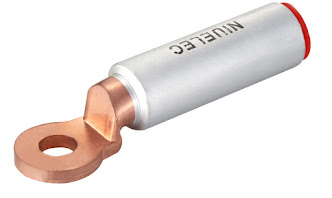How Do Copper Cable Lugs Help in Preventing Corrosion and Ensuring Long-Lasting Electrical Connections?
Copper cable lugs are an indispensable element in electrical systems by giving a secure and efficient connection among cables and electrical equipment. Probably one of the most pivotal benefits would be their resistance to corrosion and assurance of dependable electric connections for extended periods. Selection of a good-quality copper lug will, therefore, significantly enhance the performance and safety of any given electrical installation.
Copper exhibits an intrinsic property of resistance to corrosion with regard compared to other metals. A very good reason for this phenomenal performance in corrosion resistance is the development of a stable oxide layer at the exterior of copper on exposure to air and moisture. The oxide layer being thin continues to protect the copper from further oxidation and degradation. Hence, the copper lugs conserve electrical conductivity in the long run no matter how humid the environment or contaminated.
Besides the natural corrosion resistance, copper cable lugs are either treated or coated with some plating to add value to the protection, commonly with tin. Tin-plating creates corrosion-resistant copper cable lugs during exposure to moisture, salt, and chemicals. That makes it ideal for outdoor, marine, or industrial applications. The extra layer provides corrosion protection and contributes to ease of use by preventing oxidation of the copper, keeping its surfaces intact for clean, effective connections during installation.
Furthermore, copper cable lugs have been designed to yield a secure mechanical bond in conjunction with proper crimping or soldering techniques. The stronger the mechanical connection, the more it will limit the formation of gaps or weak points where corrosion can begin. Good crimping practices align the cable and lug as one entity, reducing resistance so there is less build-up of heat that would initiate accelerated corrosion or failure of the connection.
Another important consideration is that copper lugs are most compatible with copper wiring as the preferred conductor utilized in electrical construction thanks to its conductivity. Using copper lugs with copper cables will avert the possibility of galvanic corrosion commonly suffered when dissimilar metals are put together to form a solder joint, thus ensuring a stable and long-lasting connection.
In contrast, the copper cable lugs mainly prevent corrosion and ensure the prolonged life of electrical interconnections. Because of copper's natural properties, available decoration types, and installation techniques, copper cable lugs maintain reliable electrical systems which are safe and efficient for various applications.




Comments
Post a Comment